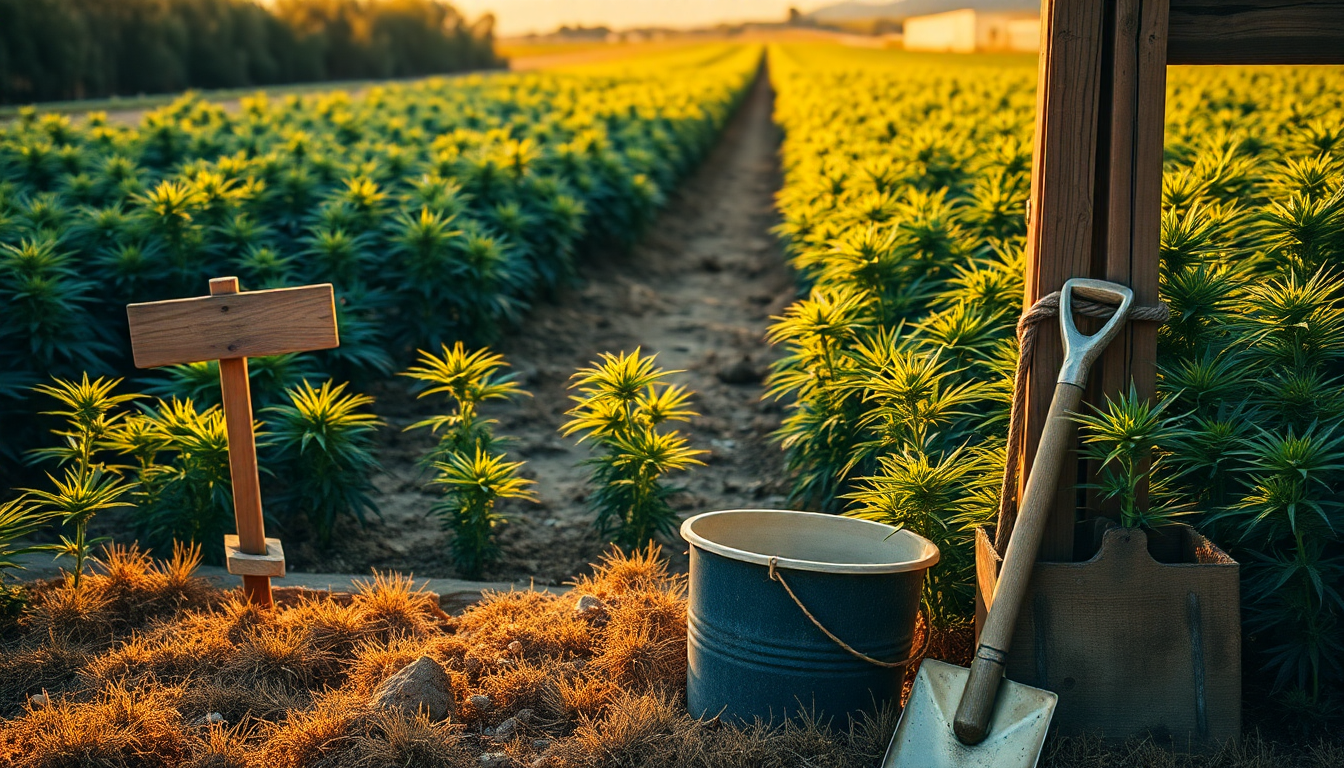Table of Contents
The recent immigration raids on cannabis farms in California have ignited a firestorm of controversy within the agricultural community. Approximately 200 individuals were arrested, and the heartbreaking death of a farmworker has cast a shadow over the entire situation. What does this mean for the cannabis industry and the vulnerable immigrant workforce that supports it? Let’s dive in.
Overview of the Raids and Immediate Consequences
On Thursday, immigration agents conducted a series of operations at two cannabis farms in Southern California, leading to the arrest of around 200 immigrants believed to be living in the U.S. illegally. The Department of Homeland Security confirmed that these raids uncovered at least 10 children who were potentially at risk of exploitation. Naturally, such enforcement actions sparked significant backlash from local advocates, resulting in confrontations that left both protesters and law enforcement personnel injured. How do we reconcile enforcement with community safety?
One of the most tragic outcomes was the death of Jaime Alanis, a farmworker who suffered severe injuries from a fall during the raids. His death highlights the risks faced by immigrant workers in an already precarious industry. Advocates for farmworkers expressed outrage, emphasizing the dangers of aggressive immigration enforcement tactics in agricultural settings. Isn’t it alarming to think about the human cost behind these policies?
The raids also led to violent clashes between protesters and law enforcement, with several individuals arrested for assault and disturbances. Reports indicate that over 500 demonstrators attempted to intervene, raising serious concerns about the impact of such operations on community morale and safety. What does this say about the growing tension between law enforcement and local communities?
Immigration Policy and Its Effect on the Agricultural Workforce
These recent actions by immigration authorities are part of a larger strategy aimed at stricter enforcement of immigration laws, with significant ramifications for the agricultural sector. Many cannabis farms rely heavily on immigrant labor, a workforce often lacking legal protections and vulnerable to exploitation. The sudden enforcement actions have instilled fear among workers, disrupting labor availability and productivity. How sustainable is this approach for an industry that depends so heavily on this workforce?
Glass House Farms, one of the affected businesses, stated that they are cooperating with authorities while also ensuring legal support for detained workers. However, the fear of raids may deter potential employees from seeking work in the cannabis industry, worsening existing labor shortages. As the market evolves, what does this mean for the future of cannabis cultivation in California?
Moreover, the legal landscape surrounding cannabis is continuously shifting, creating a complex intersection between state-level legalization and federal immigration policies. As California embraces cannabis cultivation, the reliance on a marginalized workforce raises ethical and operational challenges. Advocates are calling for comprehensive reform that not only tackles immigration policies but also safeguards the rights of farmworkers. Isn’t it time to rethink how we approach these issues?
Future Considerations and Legal Implications
The fallout from these raids is bound to influence the future of both immigration policy and the cannabis industry. Recent judicial rulings have begun to question the legality of such sweeping enforcement actions, highlighting concerns over racial profiling and due process violations. A federal judge recently issued a temporary restraining order against indiscriminate stops by immigration agents, underscoring the need for reasonable suspicion before detaining individuals. How will these legal challenges shape future enforcement strategies?
As this situation unfolds, it’s crucial for stakeholders in the agricultural sector to advocate for policies that ensure the safety and rights of all workers. This includes pushing for legislative changes that create pathways to legal status for undocumented workers, who are essential to the economy. What steps can we take to make this a reality?
In the coming months, the cannabis industry will need to navigate not only the complexities of compliance with state and federal laws but also the ethical implications of its labor practices. The focus must shift towards creating a sustainable model that respects human rights while meeting labor demands. Are we ready to embrace this challenge for a better future?


